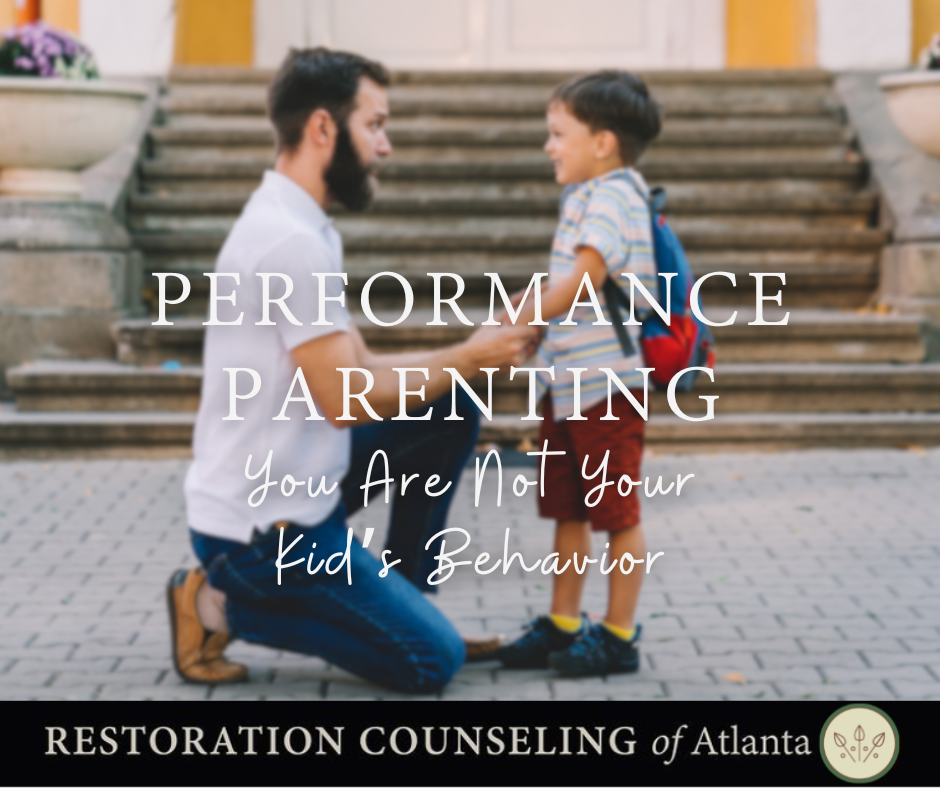You Are Not Your Kid’s Behavior
Every parent has a Target story…
My son was 3 years old when it happened to me. Looking back, the signs were all there: He was tired, probably hungry, and it had already been a long day at preschool. I forget the exact reason we stopped at Target that afternoon, but I remember that it was supposed to be a quick trip for something specific. Unfortunately for me and the rest of the shoppers at Target, we passed the toy section. Something caught his eye and he needed it. Badly. And in my haste, I brushed him off like he was a reasonable adult of 35…”hey, no we don’t need that. Only here for one thing…”
My three-year-old unloaded all of his frustration, tiredness, and hunger on me at once in the middle of Target. Yelling, kicking, screaming, crying. It was epic. Everyone in the store heard him. After about 3 mins of attempting to calm him, I realized this was not a fit we would recover from. I picked him up, flailing, put him under my arm like he was a football, left my cart where it was, and walked out of the store to my car. Right as we got to the door we nearly ran into one of my coworkers…of course we did. She gave me a knowing smile and said, kindly, “we’ve all been there, dad.”
I really appreciated her encouragement in the moment, because she was right, wasn’t she? If you’re a parent, you’ve almost assuredly had that moment. It’s highly likely that you’ve had many moments like that at various ages of your children creating various moments of frustration and embarrassment for you. But here’s a truth that I think all parents need to hear: You Are Not Your Child’s Behavior.
Are you responsible for a child when they struggle? Of course! Are they screaming in Target because you’ve done something wrong? No way. But we often feel that, don’t we? We feel the sting of embarrassment when our child struggles, or pitches a fit, or isn’t kind, or doesn’t comply at home or school or other places with other adults. And sometimes, because we are human, we react out of that frustration and embarrassment. I think it’s helpful for us to call that moment “Performance Parenting.” We feel like our kid has not performed well as we’d hope and it hurts us personally. We fear judgment from others watching our child not behave well.
Performance Parenting Mode
After working with families struggling with difficult moments with their children, I’ve found that we rarely respond with the support and intention our kids need when we are in “Performance Parenting” mode. This is rarely a conscious decision. We see our kid acting inappropriately and we get embarrassed. This is a normal human instinct and often a strong one. It’s even more difficult to respond purposefully if we are stressed, anxious, or overstimulated ourselves.
I think an important and helpful reframe is to remind ourselves that “we are not our children’s behavior.” In calm moments, when we have time and space to reflect, we know that the reasons a kid throws a tantrum or misbehaves are hard to pin down because there are endless factors. Energy levels, tiredness, fear, excitement are just a few variables to consider. We rarely even think of the developmental stage a kid is in or the fact that their brains cannot process various stimuli at certain ages.
The fear that “people will think I don’t discipline my child” is not a helpful thought. Most parents have been in that exact situation and feel deep compassion and empathy for moms and dads working through those moments. Of course, it’s absolutely possible to encounter judgmental eyes or even comments at times. It’s important to remember that adults who would judge parents based on their kid’s immediate behaviors are not self-aware, generous, or thoughtful. These are not the people we want helping us raise our children.
So, when your kiddo is struggling with tantrums, angry outbursts, or misbehavior, it’s important to remember that they need you at that moment. They need your guidance, your assurance, your boundaries, and most importantly, your calm. It’s much easier to be intentional and purposeful in those moments if we aren’t in “Parental Performance Mode” and we remember this truth: “I’m not my kid’s behavior.”

Written by: Josh Thames, MEd, MS, APC
Roswell Location
Buckhead Location
josh@restorationcounselingatl.com
Josh (Roswell and Buckhead) works with adolescents, teenagers, couples, and adult males. Josh uses narrative, CBT, and attachment theory in his therapy for issues related to trauma, abuse, grief, anger, anxiety, depression, gender-related concerns, ADHD as well as marriage and premarital counseling.

